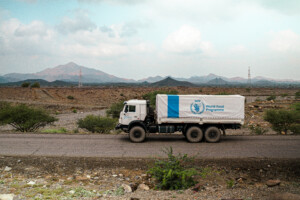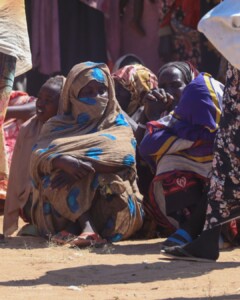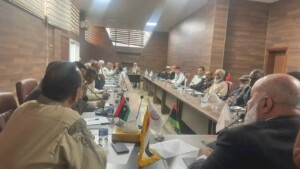Darfur genocide remembered on Holocaust Memorial Day
Sunday January 27 marked International Holocaust Memorial Day; on this day the millions of lives lost during the Holocaust are remembered, along with subsequent genocides in Darfur, Cambodia, Rwanda, and Bosnia.
 El Fasher, North Darfur: A group perform a show during the event to commemorate and raise awareness for International Human Rights Day on 10 December 2013 (Hamid Abdulsalam/UNAMID)
El Fasher, North Darfur: A group perform a show during the event to commemorate and raise awareness for International Human Rights Day on 10 December 2013 (Hamid Abdulsalam/UNAMID)
Sunday January 27, marked International Holocaust Memorial Day, the anniversary of the liberation of Auschwitz-Birkenhau; on this day the millions of lives lost during the Holocaust are remembered, along with subsequent genocides in Darfur, Cambodia, Rwanda, and Bosnia.
Every year, events are organised worldwide in which genocide can be remembered and reflected upon.
Abdul Aziz Mustafa, a survivor of the Darfur genocide, spoke to the Holocaust Memorial Day Trust (HMDT) coming to the UK as a refugee. This year, the theme was Torn From Home. He said that: "Britain is now my second home. It is good to have a new life, but it was really tough to have no contact with my family for so long."
An attendee of London's HMDT event told Radio Dabanga: "Someone commented as we walked out of the event that they had lost their house in Darfur, but they'd built a home in the UK."
These experiences highlight that ongoing acts of persecution and violence in Sudan continue to push people from their homes.
According to United to End Genocide, the Darfur conflict has claimed 300,000 lives, displaced 2.7 million people, and forced another 250,000 to flee abroad, mainly to Chad.
Darfur
Early 2003, two Darfur rebel movements, the Sudan Liberation Movement, founded by Abdelwahid El Nur (SLM-AW), and the Justice and Equality Movement (JEM), headed by the late Khalil Ibrahim, took up arms against Khartoum. They accused the Sudanese government of politically and economically marginalising the country’s western region and oppressing the population, largely of African origin.
The government responded by carrying out fierce attacks against villages, suspected of harbouring rebels. However, the Sudan Armed Forces in cooperation with large groups of militiamen attacked and destroyed hundreds of villages, regardless of the presence of rebel fighters. These militiamen, locally called janjaweed, had been recruited among young, impoverished nomads of Arab origin in the region.
Mukesh Kapila, who led the UN’s largest country mission in 2003 and 2004 as the United Nations Resident and Humanitarian Coordinator for the Sudan, blew the whistle to signal that Darfur was facing a genocide like in Rwanda.
Indicted
In 2009, the International Criminal Court (ICC) in The Hague indicted President Omar Al Bashir for war crimes and crimes against humanity. A year later the Court issued a second arrest warrant for Al Bashir on three counts of genocide.
Until this day, Al Bashir has avoided arrest by the ICC, despite visiting many countries which have failed or refused to arrest the Sudanese president. Nonetheless, the arrest warrants have severely curtailed the ability of Al Bashir to travel freely.
Most recently, the ICC issued an official request to the Republic of Belarus for “cooperation in the arrest and surrender” of Sudan’s President Omar Al Bashir, who made an official visit to Minsk on December 9 2018, which was ignored.
An extract from Tears of the Desert by Halima Bashir, read by Jenny Agutter, tells of the effects of such crimes on survivors:
Nuba Mountains and Southern Blue Nile
In an interview with Radio Tamazuj in 2013, Mukesh Kapila warned international actors of the actions of the Sudanese government: “The Khartoum government is using the same politics for the Nuba Mountains and Southern Blue Nile as it has in Darfur including scorched-earth tactics, committing war crimes and causing a famine.”
At the time, he called for an investigation in order to determine whether the nature of the violence should be considered as crimes against humanity or worse.
The Sudan Democracy First Group (SDFG) reported in 2016 that religious discrimination has clearly been executed by the Sudanese government on the people of the Nuba Mountains. “The security apparatus appears to consider their churches in Khartoum as centres of undesirable gatherings and their leaders as opinion leaders who are categorised as security threats given their influence in their parishes. This combination of ethnic and religious targeting and discrimination against Sudanese citizens of Nuba Mountains/South Kordofan and Blue Nile origin has become a key tool of the political conflict in the two regions.”











 and then
and then